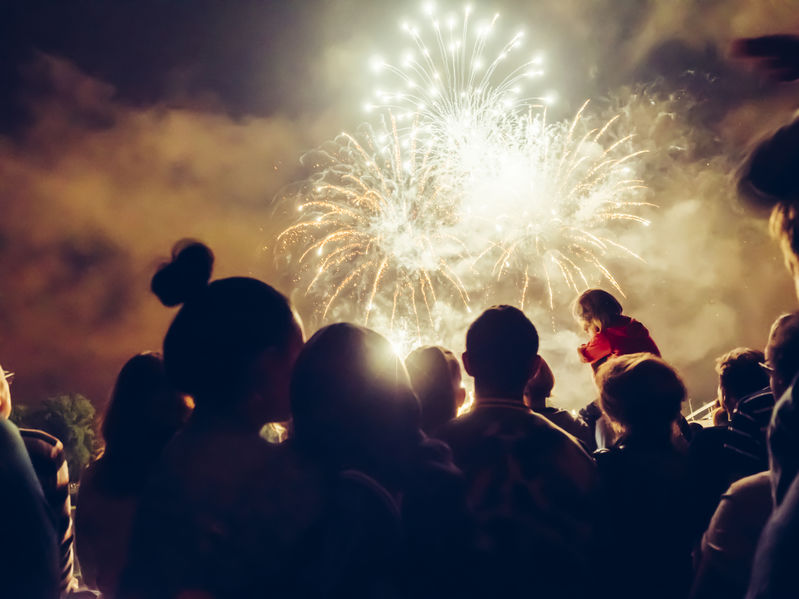
Vets are urging farmers to take steps now to avoid possible injury and distress to livestock during traditional fireworks dates such as Bonfire and New Year's Eve.
The advice comes as concern rises over an increase in unregulated backyard fireworks this year as official displays are limited by Covid-19 restrictions.
Veterinary professionals see first-hand the impact of firework-related distress in livestock and horses at this time of the year.
In a survey conducted by British Veterinary Association (BVA) in 2018, around one in 14 vets in the UK reported seeing animals with firework-related injuries over the previous year.
By far the most commonly reported cases were self-injuries caused by fireworks-related anxiety, such as fractures in horses that had bolted from their fields.
The negative impact isn’t restricted to noise levels - the debris and remnants of fireworks and paper lanterns in the countryside can also pose a serious risk of injury to livestock.
BVA Senior Vice President Daniella Dos Santos said the loud noises and bright flashes from fireworks can be extremely traumatic for livestock.
"While Covid-19 restrictions may lead to the cancellation of official displays, we are worried about a rise in the number of backyard celebrations," she added.
“We’d encourage livestock keepers to consult with their vet to discuss management and treatment options, which may include noise desensitisation techniques, applying pheromone products around the house, and preparing a ‘safe place’ for animals.
“With professional input and owner commitment and patience, a phobia of fireworks can be effectively treated with appropriate behaviour-modification techniques."
Cows or sheep startled by the loud noises from fireworks are at risk of injuring themselves on fencing, farm equipment or fixtures and fittings within their housing, the BVA notes.
Poultry are at risk of ‘smother’, where in a fear response birds huddle together, which can result in death for some.
Horses and ponies are prey animals and exhibit ‘flight’ responses in response to any threat, which can result in running away or trying to escape their enclosures, the body adds.
How can I keep livestock safe during firework season?
The British Veterinary Association has issued the following tips for farmers to keep livestock safe:
• Keep livestock housed at times when fireworks are likely to be set off locally and remove any firework debris from grazing pasture before letting them out.
• Horses may be better turned out in a field than stabled, as in a stable they may feel enclosed and unable to move. Owners should consult a qualified equine behaviourist if they have significant concerns about their horse’s response to fireworks.
• If you’re hosting a fireworks display, avoid setting them off near horses, livestock or companion animals. Dispose of any debris and remnants of fireworks responsibly.
